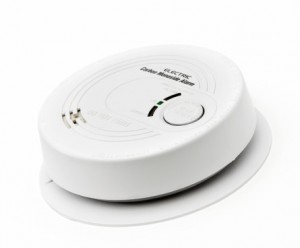The Reasons Why You Shouldnt Bother About Hoodia Side Effects
Hoodia gordonii is one of the seriously promoted weight loss nutritional supplements these days. Several health professionals don't recommend taking hoodia for weight loss, nonetheless. There are not many scientific tests that support the promise that hoodia may help weight loss. Only one investigation can be considered reputable and it was not conducted on humans but on mice. Mice and humans differ significantly in digesting what they eat. Therefore, what works in rodents will not essentially work in humans.
Let's take a good look at this questionable South African succulent. This succulent stinks like ruined meat and flies pollinate them as described by Wikipedia. Hoodia gordonii is indigenous to Namibia and also South Africa. The South Africans have been using the plant to take care of minor infections and also upset stomach. The massive international market demand for the medicinal plant is actually risking its existence. Ironically, there's really no solid scientific verification to verify the claims that it may help in weight loss.
The promise is that it operates much like the caralluma shrub and that it inhibits the urge for food. However, the only established scientific investigation was conducted on mice. In addition, the active component referred to as P57 was actually injected inside the brain of the mice. The liver could quickly break down the P57 molecules. It does not produce considerable effects even on mice given that it is broken down with the liver before it reaches the brain where it must do its work. To see any results, it must be injected directly to the brain. We understand that a lot of people will go to great lengths just to get slimmer without needing to exercise but direct brain injection appears to be going too far.
The reality that there's not enough scientific verification could not discourage promoters to advertise the smelly plant, nonetheless. When BBC's "60 Minutes" covered the smelly plant, the market demand for hoodia dietary supplements drastically went up. The increased market demand naturally made the much-talked about plant very expensive. Spammers were not to be left out either. An enormous number of spam email messages were sent promoting the much-talked about plant as the next big thing in weight loss. One company even used a celebrity to advertise their hoodia-based weight loss goods.
This same company was warned by the FDA due to false claims. Pfizer changed its mind concerning the effectiveness of the plant in question for weight loss and did not continue with research and development. It only tells us that the plant in question probably didn't have what it takes to successfully help in weight loss.
One of the most common hoodia side effects is lightness in the wallet. Seriously, you'll find not enough scientific experiments to ascertain the unwanted effects of this South African succulent. You'll find lots of alternatives that you can try anyhow.
Conjugated linoleic acids or CLA are recognized to be effective in weight loss. You'll find CLA side effects also that you have to know about. When compared with the stinky plant, there is a great deal of information about CLA which you can use.
-
Tone & Strengthen the Upper Body with These Easy Exercises
The upper body is one of many problem ar
-
Kim Kardashian Weight Loss Facts
The Kardashians are probably the most viewed celebrities and the medi
-
Lose Weight Comfortably With Natural Weight Loss Products
Supplements that contain naturally occur
-
How Self Hypnosis Can Help You Lose Weight Easily
The conventional thinking about losing weight healthily is to eat corr
-
New Ways of Measuring Progress for Weight Loss
I think of my digital scale as a self-in
-
The Lipitor, Atkins Diet Plan for Good Health and Weight Loss
For years, the Atkins diet has been the
- DON'T MISS
- Sexy Omega Three Salad
- With Weight Loss Attitude Is Everything
- Weight Loss Programs – Do Any of Them Work?
- Weight Loss And Nutritional Myths
- 5 Methods To Detoxify Your Body And Become Healthier
- Slimming Down This Fall: 5 Celebrity Weight Loss tips
- 5 Amazing Strategies for Fat Loss!
- Stress Eating: Alternatives to Eating for Comfort in Times of Stress
- A Few Ways To Win At Weight Loss
- Lose Weight and Stomach Fat with the Truth About Abs




